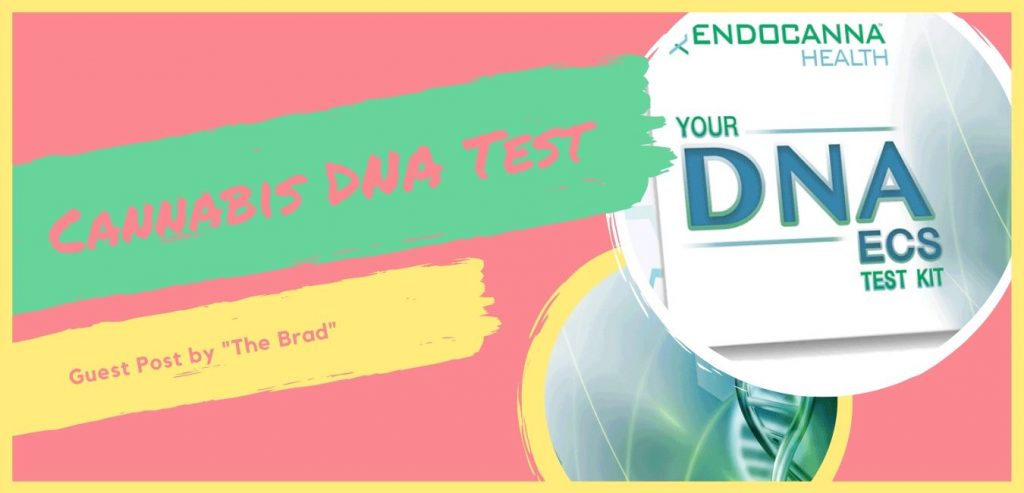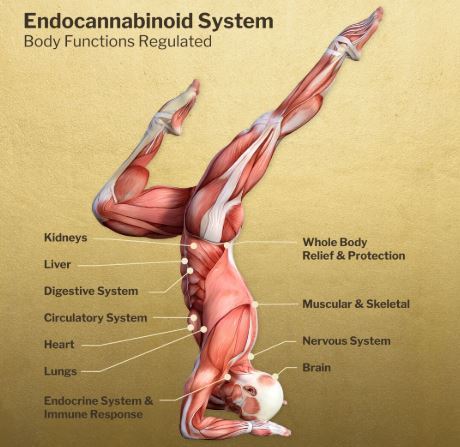This article is a guest post, submitted by The Brad. The Brad is a freelance cannabis writer who can be found on Instagram or you can shoot him an email at “[email protected]”. For more information on article submissions click here.
Home DNA testing kits have become a popular phenomenon over the last several years with big-name companies such as “23 and Me”, and “Ancestry DNA” leading the charge. So why not add cannabis DNA tests to the mix?
Believe it or not, more people took a DNA test in 2018 than in all previous years combined.
At the start of 2019, it was estimated that over 26 million people have had their DNA tested. That number is expected to grow to over 100 million within the next two years.
It’s no surprise that DNA tests are in high demand. The things you learn from them are irresistible. Details such as ancestry, family history, health risks and family planning are certainly what has driven the popularity.
However, can you imagine your DNA being able to identify what cannabis strains are best for ailments that you might not even be aware you have? That’s where cannabis DNA tests come into play.

Table of Contents
Why consumers could benefit from a cannabis DNA test
Although this sounds like something out of the future, this technology is available today through Endocanna Health’s Cannabinoid DNA Variant Test®.
It’s described as the most comprehensive personalized cannabis DNA test available on the market today.
The LA company has created a cannabis DNA test that uses a saliva sample to identify an individual’s genetic variants related to cannabinoid receptors and metabolism.
Like many people in their early teens, Len May, CEO and founder of Endocanna Health, was diagnosed with ADD (attention deficit disorder).
As a result, he was put on a myriad of drugs only to accidentally discover that cannabis was the best treatment for his condition.
“I accidentally discovered it hanging out with some friends in high school and it became sort of my go-to medicine that helped me focus. I never realized that it was medicine for anybody else, I just thought it was me because everybody consumed it recreationally.” Len May (Endocanna Health)
How an ADD diagnosis inspired cannabis DNA test kits
May continues, “When you have ADD, you’re either multitasking and doing a million things at once or you hyper-focused on something that really stimulates your dopamine production because that’s what ADD is, a lack of that.”
As May got older, he became aware that cannabis wasn’t just helping him with his condition, but was also being used to help many other people and their conditions.
His mission became to try to educate as many people as possible on the benefits of cannabis and became the president of the Cannabis Action Network – an organization to fight for the legalization of cannabis.
May eventually left his hometown of Philadelphia and moved to LA.
“The only thing that I could think of was to get into this dispensary business, and that’s what I started doing. We had an ownership interest in five different dispensaries, but it still wasn’t satisfying me because I really wanted to focus on helping people with their conditions.” Len May (Endocanna Health)

He started working with one of his mentors, Kevin McKernan who was the chief science officer of a company called Medicinal Genomics. May’s job was to go around the U.S. and Canada to collect tissue samples from cannabis plants, purify them, extract DNA, purify that, and send it to a sequencer in Boston.
As May puts it, “We started the first “cannabinoid library”, for lack of terminology, called Cannapedia. I became hyper obsessed with human DNA and trying to figure out how genetic expression can be modified through the use of cannabinoids and as it relates to different disease states”.
That research allowed May an opportunity to launch Endocanna.
Understanding the endocannabinoid system
Soon after, he met his partner Eric, who subsequently spent about a year and a half with May’s research team to look at every single gene that has a direct or indirect association with the endocannabinoid system.
“We were trying to figure out how we communicate this information to the general public as a diagnostic tool while being compliant with the Food and Drug Administration. We came up with eight different symptomatic conditions for which people consume cannabis and where genes also play a role. They are anxiety, depression, pain, metabolism, dependence, cognitive function, sleep quality and psychosis. Once we did that, we were able to launch a direct to consumer kit.” Len May (Endocanna Health)
To better understand how the DNA testing works, one must first understand what in fact the endocannabinoid system is. It is primarily a regulatory system for many different functions within our bodies.
Functions include body temperature, blood sugar levels, a lot of brain functions, our bones and muscles, and even sexual organs. Our body produces endogenic endocannabinoids.
“To put it a little less scientifically, we have a system that regulates a lot of different functions in our bodies. We produce our own cannabinoids within our bodies and when we don’t have enough we’re lucky enough that we found this plant that is able to supplement that,” explains May.

Endocanna Health and the first endocannabinoid DNA test
While Endocanna Health created the idea of the cannabis DNA test, it also prides itself on being the first endocannabinoid DNA test and the most comprehensive.
The idea of the test is to identify what each individual’s potential is for genetic expression related to anxiety, pain, cognitive function etc.
The objective of the test is to not only identify the genetic marker that makes an individual prone to one of the eight commonly treated disorders but also identify the safest method to treat those disorders using cannabis.
How you can use the information from cannabis DNA tests
Understanding somebody’s genetic expressions will also uncover the association between anxiety and cannabis use.
May describes this in more detail:
“There are genes like FAAH for instance that have an association with stress response and the release of cortisol. When somebody consumes, and they have this genotype, THC may trigger expression of that anxiety response and release more cortisone to your bloodstream. […] It triggers your fight or flight and it gets triggered much faster than the average population. If you know this genetically about yourself, the formulation that will be recommended to you is a higher CBD and lower THC formulation to be able to mitigate the possibility of a gene expressing itself.” Len May (Endocanna Health)

May explains that the second part of the secret sauce is the terpene profile. For example, if someone consumes a formulation that is prevalent with a primary terpene like linalool, which is also found in lavender, it will be calming.
“We have studies to support that cannabinoids in concert with linalool actually help to reduce the anxiety that’s put out by THC. That type of formulation will actually allow a person to consume cannabis effectively without possibly triggering that anxiety response and they’ll be able to address their symptoms and have a really positive effect,” May said.
As mentioned from the outset, there are millions of people that have already taken a DNA test through one of the many providers out there. If you are one of those who have, you can avoid the swab test altogether.
How to take a cannabis DNA test
With Endocanna Health’s cannabis DNA test, you don’t have to swab. Instead, the test uses raw data from a variety of DNA tests already available.
“If you have taken a 23 and Me, An Ancestry, Family tree DNA, or any of the other genetic tests that are out there, – and [there are] around 40 million people globally who have taken a genetic test – you can just take your raw data from that test, upload it to our site, and we’ll give you an endocannabinoid report within 30 seconds.” Len May (Endocanna Health)
May hopes to make this a much less financially taxing experience. While the entire test is about $200, the raw data report costs $49.95. Enocanna Health also ships globally including European countries and Australia.
To roll this up
May mentions that Endocanna Health has a partnership with Ward Medication Management out of Australia to do clinical trials. They are also working on an EEG trial in the U.S.
“The reason why this is important to mention is because people are going to say ‘okay, just because he has a genetic predisposition how do you know?’ Well, you know by the feedback mechanism. We will know on a cellular level and our recommendations will be based on your profile, and how it’s working for that individual,” said May. “Those are the studies that we’re doing right now. As a result, we’re going to learn from that experience through our AI and get even better at recommending personalized cannabinoid medicine.” Len May (Endocanna Health)
What do you think? Would you give the cannabis DNA test a try?



